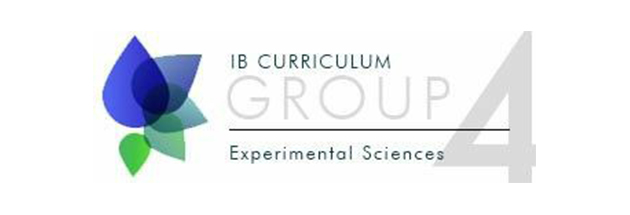IB Experimental Sciences
Students explore the concepts, theories, models and techniques that underpin each subject area and through these develop their understanding of the scientific method.
Students explore the concepts, theories, models and techniques that underpin each subject area and through these develop their understanding of the scientific method.

Biology is an experimental science that combines academic study with the acquisition of practical and investigational skills. Biologists have accumulated huge amounts of information about living organisms, and it would be easy to confuse students by teaching large numbers of seemingly unrelated facts. In the Diploma Programme biology course, it is hoped that students will acquire a core body of facts, and, at the same time, develop a broad, general understanding of the principles of the subject.
Although the Diploma Programme biology course has been written as a series of discrete topics, there are four basic biological concepts that run throughout:
The course is available at both standard level (SL) and higher level (HL), and therefore accommodates students who wish to study science in higher education and those who do not.
Chemistry is an experimental science that combines academic study with the acquisition of practical and investigational skills. It is called the central science, as chemical principles underpin both the physical environment in which we live and all biological systems. Apart from being a subject worthy of study in its own right, chemistry is a prerequisite for many other courses in higher education, such as medicine, biological science and environmental science, and serves as useful preparation for employment.
The Diploma Programme chemistry course includes the essential principles of the subject but also, through selection of options, allows teachers some flexibility to tailor the course to meet the needs of their students. The course is available at both standard level (SL) and higher level (HL), and therefore accommodates students who wish to study science in higher education and those who do not.
Physics is the most fundamental of the experimental sciences, as it seeks to explain the universe itself, from the very smallest particles—quarks (perhaps 10^–17 m in size), which may be truly fundamental—to the vast distances between galaxies (1024 m).
Despite the exciting and extraordinary development of ideas throughout the history of physics, certain things have remained unchanged. Observations remain essential at the very core of physics, and this sometimes requires a leap of imagination to decide what to look for. At the school level both theory and experiments should be undertaken by all students. They should complement one another naturally, as they do in the wider scientific community.
The Diploma Programme physics course allows students to develop traditional practical skills and techniques and to increase facility in the use of mathematics, which is the language of physics. It also allows students to develop interpersonal skills, and information and communication technology skills, which are essential in modern scientific endeavour and are important life-enhancing, transferable skills in their own right.
The course is available at both standard level (SL) and higher level (HL), and therefore accommodates students who wish to study science in higher education and those who do not.
The IB Design Technology Course is structured to strongly connect design considerations with social issues, environmental impact, making informed choices, and differentiating between information and misinformation in technology. Students will study technologies in different cultures and be encouraged to understand the forces that have shaped their development.
The intent is not solely the acquisition of knowledge about design and technology, which may change or become outdated, but it is about learning how to adapt to new experiences and to approach problems with appropriate skills and relevant techniques to identify the important elements and develop the best solutions.
Students will be given the opportunity to deal with realistic engineering problems and to synthesize appropriate solutions culminating in a final design project. Topics covered include: the design cycle, product innovation, green design, materials, product design and development, evaluation, advanced manufacturing techniques, energy, and sustainable development. Assessment will be based upon practical, experimental, investigative and project work in the workshop and classroom.
The course is assessed based on the results of 3 Examinations and a number of Internally assessed projects as follows;
External assessment (Total 64%)
Paper 1 – Multiple Choice questions
Paper 2 – Short answer and extended response questions
Paper 3 – Based on the option chosen
Internal Assessment (Total 36%)
Higher Level students are required to spend 81 hours, and Standard Level students 55 hours, on practical activities (excluding time spent writing up work). These times include 10 hours for the Group 4 project
The Diploma Programme physics course allows students to develop traditional practical skills and techniques and to increase facility in the use of mathematics, which is the language of physics.
The International School of Penang (Uplands)
Jalan Sungai Satu,
11100 Batu Feringgi, Penang,
Malaysia
E: [email protected]
T: +60 4 881 9777
F: +60 4 881 9778
